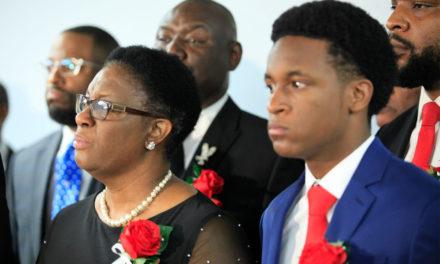
This is Black History Month. We encourage you to participate in activities in your community.
Colorism is something that is very rarely talked about in diversity discussions. We talk about “race and ethnicity” but colorism is a significant sub-phenomena that actually matters in hiring, promotions and other employment decisions.
Colorism, a practice where those with lighter skin are treated more favorably than those who are darker, manifests inter- as well as intra-culturally. Behavioral scientists have conducted numerous studies globally that show both whites and blacks are more favorably disposed toward people with lighter skin, rating them smarter, wealthier, and even happier. One such study showed participants 60 photos, including some pictures of the same person that were altered to make their skin look darker. Both whites and blacks gave lower scores on intelligence to people with darker skin.
In Latin and South America, light-skin is seen as more attractive. In Mexico and in Brazil, light-skin represents power. Darker skinned people are more likely to be discriminated against across the globe.
“Skin-whitening cosmetics are a multi-billion dollar industry pushing the idea that beauty equates with white skin and that lightening dark skin is both achievable and preferable” according to a recent post in The Guardian.
A 2006 University of Georgia study showed that employers prefer light-skinned Black men to dark-skinned men, regardless of their qualifications. The study found that a light-skinned Black male with a Bachelor’s degree and typical work experience was preferred over a dark-skinned Black male with an MBA and past managerial positions (Starr, 2011).
A Law Professor at Vanderbilt University conducted a study of over 2,000 immigrants from around the world and found that those with the lightest skin earned on average 8-15% more than similarly qualified immigrants of darker hues. He concluded that the primary reason for the difference was discrimination (The Associated Press, 2007).
In 2012, Dr. Donnamaria Culbreth founded the Intraracial Colorism Project, “to investigate and report the existence and occurrences of colorism within Asian, Black, Indian and Latino communities throughout the United States and abroad,” as well as to educate people on the effects of colorism and how to eliminate it (The Intraracial Colorism Project). The project intends to focus on areas such as economics, social acceptance and psychological effects.
Recently Iyanla Vanzant explored the issue of colorism on one of Oprah’s Lifeclass sessions. She said that it is a significant problem; that it is unconscious and that we must first acknowledge that it exists both intra-culturally and interculturally.
Do you unconsciously favor light-skinned people over darker ones? I invite you to do some self- reflection.



















Thanks for reminding us of colorism and for providing all the statistics supporting this senseless tendency. Do you know what the research says as to WHY this happens (esp since it’s a global phenomenon)?
Thank you, Mary Francis for covering this topic. It’s another layer of priviledge that is typically not understood or recognized. “White” has become ingrained into us as the “gold standard” hence even in our subconcious we measure based on how close one comes to “white” and judge accordingly.
I validated this with Asain women who told me that they bleach their skin and stay out of sun so they can be as light as possible on their wedding day. Hispanics have told me that the first question they ask when a child is born is their skin color. As a Black male growing up in the 60’s the aim was to have a light-skinned girl friend with long hair. In my neigborhood light skinned girls got more dates than dark skinned girls.
Thank you Rebecca and Hayward for your comments. I agree with Hayward, unconsciously we have been conditioned to think that white people are superior. Globally there has been a lot of colonialism where Europeans ruled many countries in Africa and India as well as in the Caribbean.
Great article. I doubt that Obama would have won if he had darker skin. I wonder what the stats are for incarceration.
Simma
Hi Simma…Good question about incarceration. I think I saw some stats that said there are more darker skinned people who are incarcerated. I will look for the reference and send to you. I hope you are well. Would love to catch up!